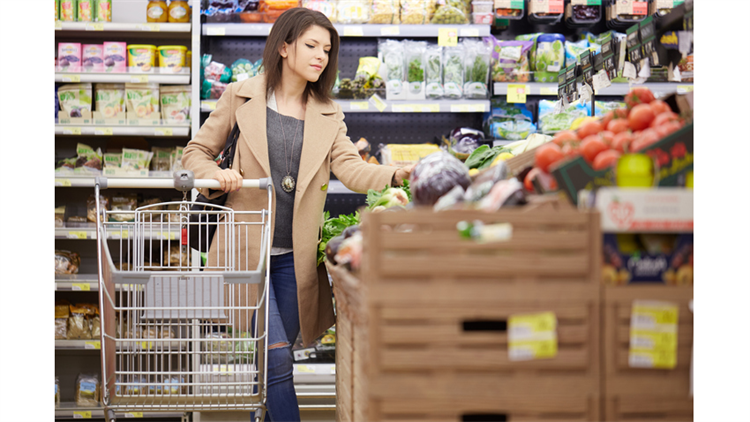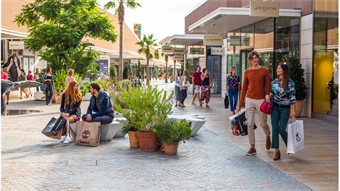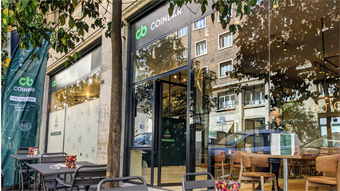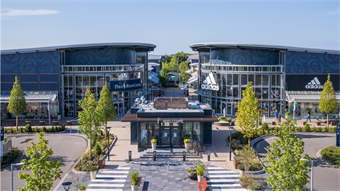Transforming retail with a sustainability champion mindset
- In Strategy
- 17:00, 18 juli 2019
- 1524 Views

Taking a leadership role and adopting credible business cases in championing sustainability have made positive inroads in retail and retail real estate, but meaningful transformation over the longer term will take much more joined-up action.
If it’s possible to sum up in one word what captures part of the zeitgeist of the European retail and retail real estate industries today, a strong contender for that accolade would have to be sustainability. Far from being a single-issue cause, sustainability is a collective responsibility with potentially limitless shared gains.
Sustainability is a growing movement that works on many levels by addressing and meeting consumer demand. It interrogates how global retailers scrutinise their supply chains – from raw materials to how products are packaged and then end up in stores. And a sustainability mindset has the potential to help future-proof retail real estate by inspiring buy-in from future generations of consumers.
This article examines how and why retailers and real estate professionals at the vanguard of sustainable retail and real estate are breaking through the ceiling of simply complying with legislation and regulation. They are creating brand new and industry-changing business cases for sustainable best practices. And they are taking leadership roles in creating meaningful transformations while encouraging others to follow.
Giving consumers what they want
A recent research study – The New Sustainability – by J. Walter Thompson Intelligence refers to new group that’s emerged in the retail ecosystem. These so-called ‘mindful consumers’ have fully embraced sustainability, it would seem. The research shows that 89% of respondents ‘care personally’ about the planet, and 92% are trying to live more sustainably.
A similar number (90%) of respondents believe that companies and brands have a responsibility to take care of the planet and its people – and 83% would always pick a brand with a better sustainability record. Despite some concerns over packaging and labelling that would inform better purchasing decisions, 70% of the consumers surveyed would be willing to pay more for products and services that protect the environment and human rights. Huge global challenges for sure – so how are retail leaders responding?
Committing for the long haul
Coop Danmark was voted the most sustainable company by tens of thousands of consumers in Denmark las year. The company’s CSR Director Signe D. Frese explains that sustainability is nothing new for the country’s largest retailer of consumer goods, operating across 1,200 stores with a 40% market share.
‘Corporate social responsibility has been part of our corporate DNA since we started 152 years ago. At Coop Danmark, it is clearly part of our mission to help provide for and work for a more sustainable society,’ she says. Coop Danmark has no stock holders, instead it is owned by its 1.7 mln members. ‘And today, we see that CSR is certainly gaining a very strong foothold in the supermarket retail area.’
Even with such a long sustainability heritage, there are no short-term fixes, according to Frese. ‘We’re definitely not there yet as supermarkets always have something to do,’ she says. ‘We have all the world’s problems reflected in our supermarkets – child labour, water scarcity, climate change, diabetes and many others. There will always be something to do.’
These are just some of the real-life challenges that retailers and their landlords encounter every day – and more than likely will always face – in the diverse communities where they operate.
Geraldine Gilbert is a Principal Strategist at Forum for the Future, and works with leading retailers to help address many critical issues they face. Gilbert say that sustainability is about looking ahead at what’s happening in the world over a ‘long time frame and outside of your industry and sector’.
‘There are environmental, health and societal constraints on how retailers can operate, but we also absolutely need the big retailers to help solve some of these challenges,’ she explains. ‘Some 50 years ago we did not shop the way we do now, so it can change again. Retailers have created today’s reality with their ranges, convenience and exciting marketing, which have, for better or worse, transformed the way we shop. With the right focus and resources, retailers can make positive changes going forward.’
Leading retail transformation
There are many examples of committed sustainability initiatives that stand out in European food retail. Some of the leading lights are Marks & Spencer in the UK with its well-established Plan A programme, Migros and Coop in Switzerland, and Albert Heijn, the largest supermarket chain in the Netherlands. Then there are very large multi-national food retailers like Carrefour – it operates nearly 12,000 stores across multiple retail brands in over 30 countries.
Bertrand Swiderski, Carrefour’s Sustainability Director, agrees that leadership is a vital element in transforming retail. In fact, the retail group aims to be a leader in food transition, a goal which is a core pillar of Carrefour’s ongoing corporate transformation programme.
‘It makes sense to take the lead in sustainability projects because you can change the way that people consume products, but you have to have long-term view,’ Swiderski says. ‘For example, we are working towards 100% of our packaging being recyclable, compostable or reusable by 2025. So you need a strong commitment and have to act concretely every day.’
Retailers in Europe are implementing pilots and change across their supply chains right back to agriculture. They are cutting carbon, investing more in renewables and other initiatives where major retailers are able to make a business case around reducing business risk and making cost savings along the supply chain. ‘A lot of what needs to happen over the long term is risk reduction, particularly on the sourcing side,’ says Gilbert. ‘Especially for crops like coffee, cocoa and bananas that are particularly susceptible to climate change, but all agriculture is susceptible.’
Reducing risk at the corporate level is complex, and as the experts say, long time frames are required. Many challenges require joined-up thinking and action though – with practical cooperation to focus on resolving systemic issues.
‘The Roundtable on Sustainable Palm Oil is a good example where everyone needs to collaborate because no-one can fix the issue on their own,’ Gilbert says. ‘The same goes for the Global Roundtable on Responsible Soy, or the Food Loss and Waste Protocol. There are more of these big crunchy systemic challenges that no-one can fix alone. The leading retailers are involved in these areas and leading them in some cases.’
Creating global priorities
Where retailers have to work with the entire industry or beyond it, there are calls for more collaboration. But while these initiatives are practically harder to tackle, they could also be most impactful when implemented.
Champions 12.3, for example, is a coalition of executives from government, business, international organisations, research institutions, farmer groups, and civil society dedicated to ‘inspiring ambition and mobilising action’. One of their goals (Target 12.3) calls for cutting in half per capita global food waste at the retail and consumer level, and reducing food losses along production and supply chains, including post-harvest losses, by 2030. The only two retailers on the committee are both European – Dave Lewis, Group Chief Executive of Tesco and Michael La Cour, Managing Director of IKEA Food Services.
According to the European Commission, an estimated 20% of the total food produced is lost or wasted, while 43 mln people cannot afford a quality meal every second day. Households generate more than half of the total food waste in the EU – that’s 47 mln tonnes with 70% of food waste arising from households, food service and retail, according to FUSIONS 2016 data.
Championing local causes
As global priorities are clearly laudable, they do not always translate into local success stories. ‘For the challenges where the business case is that much more straightforward operationally, retailers will be getting on with it, because it makes sense to strip out food waste in the supply chain,’ says Gilbert. ‘It gets harder when you want to influence consumer behaviour as the implication is that you are asking consumers to buy less.’
Sainsbury’s rolled out £10 mln test programme – Waste Less Save More – in over 30,000 Derbyshire, UK homes and aimed to encourage consumers to reduce their food waste. But five years in, the pilot scheme was binned last year due to ‘broadening and changing’ customer priorities, according to the food retailer. Despite technology support from Google, Sainsbury’s programme partner Wrap reported that the 50% food waste-reduction target resulted in just 9% savings.
Changing today’s food retailing culture is arguably not going to be changed overnight as there are decades of consumer behaviour to address.
Aiming high to Influence change
Coop Danmark’s Frese says that although not many other retailers seek to influence consumer, policymaker and politician opinion, her company actively aims to campaign for change. ‘We have worked for a very long time to phase out harmful chemical substances from our products and packaging, not because politicians and consumers have told us to,’ she explains. ‘We have read the scientific evidence from leading scientists about grave risk from harmful substances like chlorinated substances. Nobody is acting unfortunately, so that is why we are.’
Coop Danmark managed a large campaign last year encouraging customers to sign a petition and contact their politicians to raise a debate in the Danish parliament. Not just in retail but across all sectors where harmful substances are used in packaging and other applications. And the company’s efforts look set to bring about positive change. ‘One of our ministers in Denmark said he would work towards a European Union ban on chlorinated substances in food packaging,’ says Frese.
Food retailers of scale are clearly taking measures to create business cases, shape consumer, employee and stakeholder mindsets, and are campaigning for change. The big question is whether they are aiming high enough to take a more holistic and impactful approach – repairing damage done as well as preventing future harm.
‘If you want to be in business as a food retailer in 10 years’ time you need to be engaging with food waste, sustainable diets, climate change impacts on your business, and helping to repair damage and not just trying to reduce negative impact, for example, with minor reductions in your emissions,’ says Gilbert. ‘The real leaders are talking about net-positive targets to actively repair damage and harm we have done to the world. That’s about having a 110% net-positive impact, not just reducing emissions by 10%.’
Even for some of the largest retailers, they have to make choices about which areas to tackle. ‘In the retail industry we have so many things that challenge our own businesses,’ says Carrerfour’s Swiderski. ‘In terms of packaging, for example, we have to reduce single-use plastics from our shelves and we have to use biodegradable and compostable plastic packaging. We have so many areas where we need to invest in our own scope of responsibility.’






